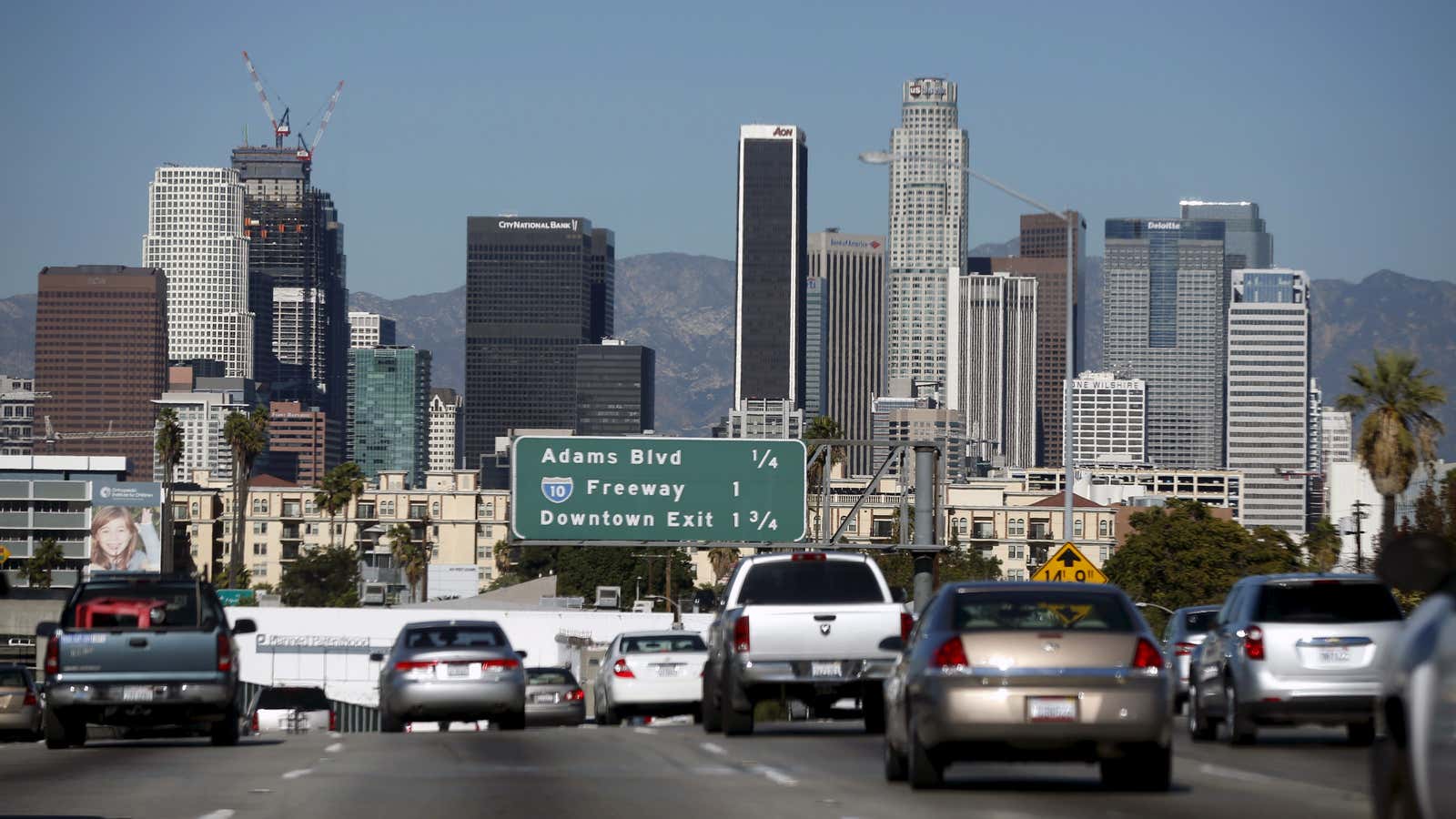Airbnb has struck a deal with city officials in Los Angeles to start paying lodging taxes on the short-term rentals booked through its platform. The deal will take effect in August, and is expected to bring Los Angeles millions of dollars in additional revenue each year. Airbnb is all for it.
“Our community of hosts want to pay their fair share and we want to help,” John Choi, Airbnb’s public policy manager for southern California, said in a statement. “We are pleased that this process is moving forward and will benefit Angelenos.”
Airbnb wants to pay taxes in Los Angeles—not to mention cities around the world—because doing so confers legitimacy. It’s much tougher for regulators to criticize a rule-flouting startup, after all, when that startup is also putting millions of dollars a year into city coffers. In Los Angeles, Airbnb estimated in January that it could have contributed $23 million in revenue in 2015 by paying lodging taxes. It released similar estimates for other cities in which there’s no formal tax agreement: $7 million in Austin, Texas; $2 million in Denver, Colorado.
“These agreements allow cities to rightfully benefit in the economic impact of home sharing while also making it easier for Airbnb hosts, the vast majority of whom are middle class people sharing their own home, to comply with local tax laws,” Choi says in his statement.
Airbnb’s tax arrangement with LA highlights the peculiar relationship that it and other “sharing” economy startups have with local lawmakers. In seeking to disrupt established industries such as hotels and taxis, these companies often clash with regulators and policymakers. Airbnb is suing San Francisco over a law that forces its hosts to register with the city, and fines it up to $1,000 a day for failure to comply. In New York, Airbnb has condemned a bill passed by the state senate that would make it illegal to advertise rentals of less than 30 days as “disappointing but not surprising.”
Uber frequently denounces regulations as “restrictive” and “onerous” and the politicians who support them as “backwards.”
Such proclamations have earned Uber and Airbnb a reputation for loathing regulations of all sort. But Airbnb’s enthusiasm for its tax deal with Los Angeles requires a different reading, as does Uber’s slow regulatory march across the US: Sharing economy companies don’t hate all the rules, just the ones that conflict with their preferred way of doing business.
Paying lodging taxes is Airbnb’s best overture, a way of demonstrating that it wants to have a constructive relationship with cities, and intimating that local regulators ought to reciprocate. In Los Angeles, where it is currently largely illegal to rent out a home for less than 30 days, the city’s planning commission late last month voted 5-4 to back a proposal that would loosen those restrictions.
A few weeks later, Airbnb brokered its tax deal.
